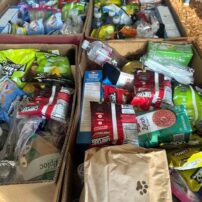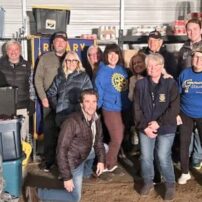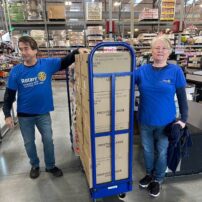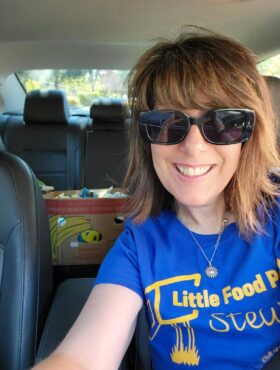
The Rotary Club of Gig Harbor Midday “Little Food Pantry Project” embarks on its fourth year providing emergency food, thanks in part to a UD5020 District Matching Grant. The grant provided a total of $3,000 for purchasing food to supplement donation and fundraising efforts. Beginning in early 2021 with just two pantries, the project has grown to encompass six locations throughout Gig Harbor and The Key Peninsula.
Responding to the widespread issue of food insecurity exacerbated by the COVID-19 pandemic, Little Food Pantries (LFPs) have become integral in addressing hunger within communities. These pantries, operating 24/7 with zero barriers to access, serve as supplements to existing food bank services, partnering closely with local agencies and communities to fill gaps in the food system.
“We have 14 dedicated Rotarians and a handful of community partners who build, repair and stock these pantries several times a week — year-round and in all weather. Many of our stewards started at the beginning and are still going strong. It is truly a labor of love,” said Midday President Jill Dabbs.
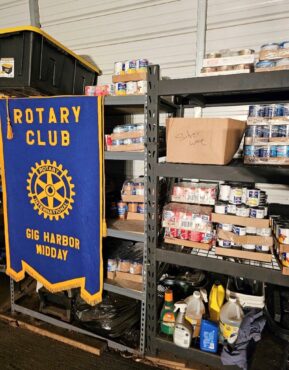
The success stories of the Little Food Pantry project are numerous, such as Cheri Johnson’s encounter with a mother and her children outside a closed food bank. Johnson directed them to a nearby pantry recently installed by the club. These pantries provide a vital resource, ensuring more individuals have access to emergency food supplies and hygiene products 24/7.
The Midday club members participate in a variety of ways, donating food at weekly meetings, running an annual community food drive, volunteering to pick up donations, attending “packing parties,” filling in as substitutes and sharing the news about the project with the community. Some business members have “sponsored” pantries by purchasing an encouraging sign, while other members are part of the maintenance crew. It is a whole-club outreach. Recently, the Rotary Club of Gig Harbor, “aka The Morning Club,” has joined the effort by contributing food and funds as well.
Operating on the principle of “take what you need, bring what you can,” these pantries rely on community contributions and the dedication of Rotarian stewards who ensure regular restocking and upkeep. The club’s commitment to this cause is evident in their ongoing efforts to expand the project, making a tangible difference in the fight against food insecurity in their community, one pantry at a time.



